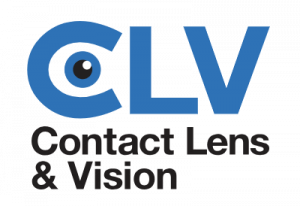 For some people, standard soft contact lenses are a great way to conveniently correct vision. For those with very dry eyes or corneal conditions like keratoconus, standard contacts simply aren’t an option.
For some people, standard soft contact lenses are a great way to conveniently correct vision. For those with very dry eyes or corneal conditions like keratoconus, standard contacts simply aren’t an option.
Scleral contact lenses, however, are a great alternative for these patients with hard-to-fit eyes. They provide several benefits, such as reducing sensitivity to light (photophobia).
What Does Light Sensitivity Feel Like?
Patients with keratoconus and other corneal conditions tend to experience discomfort or unclear vision in brightly lit environments, even after undergoing treatment for their conditions.
They may see halos around lights while driving or may not be able to drive at all due to the worsening or clouding of vision that comes with light sensitivity. Bright fluorescent lights, like in an office setting, can trigger eye pain and interfere with their productivity and creativity.
Moreover, a photophobic person may not be able to comfortably look at a computer screen or other digital device. Even with the brightness setting turned all the way down, the light that’s emitted from the screen may be too intense.
How Can I Reduce Light Sensitivity?
While implementing the following suggestions can ease your symptoms of light sensitivity, we recommend that you speak with your optometrist for a more personalized approach.
- Try to stay out of the sun whenever possible, but when you do go outside, wear dark sunglasses to block out the light.
- Consider installing filters on fluorescent light sources.
- Take frequent breaks when using a digital device.
- Reduce glare in your home by turning mirrors away from light sources and keeping windows clean and streak-free. You may want to consider removing reflective surfaces from your home altogether.
- Speak with your optometrist about whether scleral contact lenses can help you.
What are Scleral Contact Lenses?
Scleral lenses are larger in diameter than standard lenses and rest on the white part of the eye (sclera). Their large surface area vaults over the entire cornea (the eye’s top layer), and thus avoid placing pressure on the sensitive corneal tissue.
The scleral lens holds a reservoir of nourishing fluid between the inside of the lens and the surface of the eye, providing visual clarity and optimal comfort. In fact, many patients report that they are able to wear scleral contacts for longer amounts of time as compared to standard contacts.
Scleral lenses are customized to fit each individual eye, and are suitable for patients with keratoconus, dry eye syndrome, irregular/excessive astigmatism, Sjorgen’s syndrome, other corneal abnormalities and for those having undergone LASIK surgery.
How Do Scleral Lenses Reduce Light Sensitivity?
Light sensitivity, or photophobia, is a common side effect of several eye conditions, such as dry eye syndrome and keratoconus. When the cornea is irregularly shaped, it doesn’t properly reflect light onto the retina, which can lead to light sensitivity.
Thanks to their unique and customized design, scleral lenses act as a new, accurately curved cornea that is able to reflect light in a healthy way. Because of their large diameter, scleral lenses are more stable and have a wider optic zone than other lenses. They offer a more accurate perception of peripheral vision and help minimize glare and sensitivity.
An irregularly shaped cornea is not the only reasons one experiences photophobia. In fact, there are several conditions that can cause it. Your optometrist will determine what’s causing your discomfort through a comprehensive eye exam and will determine whether scleral lenses are the optimal solution for you.
The Scleral Lens and Keratoconus Center at Contact Lens and Vision serves patients from Woodbridge, Edison, Freehold, East Brunswick, and throughout New Jersey.
Q: How long does it take to adjust to scleral contact lenses?
- A: Scleral lenses are usually very comfortable right off the bat, but some patients may find that it takes up to 10 days to get used to the lenses. Your optometrist will guide you on how to shorten the adjustment period.
Q: How long do scleral contact lenses last?
- A: Under normal conditions, scleral lenses last between 1 and 3 years — far longer than standard lenses. Your tear film composition and your lens care habits will influence your lenses’ lifespan.
